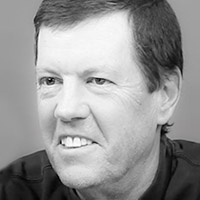Finding Value Investments in Private Equity

Finding Value Investments in Private Equity
Private investors and venture capitalists are always looking for the next great company, idea or product to put their money into, in order to reap great financial rewards down the road. However, how do private investors know where to find the true value investments that exist?
Experienced Investor
Jonathan Coslet is the Chief Investment Officer at Texas Pacific Group, also known as TPG capital, and he has been with the firm since its inception in 1993. He also serves on TPG’s Executive Committee. Before joining TPG, Jonathan started his career at Drexel Burnham Lambert and later moved to Donaldson, Lufkin & Jenrette. His formal education includes earning a BS in economics and finance from the Wharton School of the University of Pennsylvania where he was Valedictorian and later he received his MBA from Harvard Business School, where he was a Baker Scholar. Jonathan currently serves on the Board of the Stanford Institute for Economic Policy Research, the Stanford Children’s Hospital and the Stanford Medical Advisory Council. Jonathan and I discussed TPG’s state of private equity, as the company currently has almost $80 billion under its management. So I asked Jonathan how he finds the value investments?
Working on the Fringe
“At the end of the day, we have to be what I call fringe capital. Private equity as a whole is maybe 5 percent of the entire equity market capital ecosystem. The public markets are very efficient. They are getting more and more efficient every day and therefore the return on that capital is going to be tighter. We have to play around the fringes. We have to see things that others don’t see and we have to be willing to do things that others won’t do.” Jonathan said his firm has to do two things around the fringes. He said they have to have a different or uncommon point of view as an investor, which means they have to specialize, which includes both industry specialization and geographical specialization.
A Change for the Better
The other thing they need to do, according to Jonathan is to change or improve companies once they own them. “We have to do the hard work, like we did at Continental Airlines, like we did at Burger King, like we did with so many other companies along the way. That often means changing management. It often means employing new operational and strategic approaches to companies that for whatever reason aren’t being managed in a way that is aligned with the shareholders’ way.” Jonathan then explained that when you have a different point of view as an investor and you can change companies, you can outperform. “It’s hard. It takes a lot of work and it takes a lot of capabilities that you develop over time, but that’s what we do.”
Be Honest With Yourself
Jonathan concluded by saying that you have to be very selective. If you realize that you don’t see it in a very different way from everyone else or you don’t think you can really change it then maybe it’s not worth the investment because you can’t add a lot of value to it, as opposed to the ones where you do have a different point of view and where you do have a different strategic approach to operational improvement.
Contact Us here
Scott McNealy- What Projects I’m Currently Working On
About Scott McNealy- Silicon Valley Icon Scott McNealy co-founded Sun Microsystems, Inc.in 1982, serving as Chief Executive Officer and Board Chairman for over 22 years. During his tenure, McNealy transformed Sun from a Silicon Valley start-up to a leading provider of network computing. In October 2011, McNealy announced his next venture, Wayin. Wayin offers…
Philanthropy is Love | Pamela Hawley
Transcript, Philanthropy is Love | Pamela Hawley: Pamela Hawley: Philanthropy. I think the way people look at it today isn’t really correct. They look at it as giving of money. But really what it is is people, it’s the love of people. It’s all about people. It’s about the love of humanity. So what I…
Real Audio Video | Johnathan Law
About Johnathan Law Johnathan Law received his formal education in culinary arts. While recovering from a car accident he found he built himself a home theater system- when his family and friends wanted one as well, he decided that it was more fun than working in food services. Johnathan is the cofounder of Real…
How to Change the Culture of an Organization | Prasad Kaipa
About Prasad Kaipa Prasad has been an advisor and coach focusing on innovation and leadership since 1990 for about 120 C-level executives in Global Fortune 500 companies. Prasad’s unique competence is in helping his clients find their next significant step and take it. He found that unless he helps clients to examine their signature…




